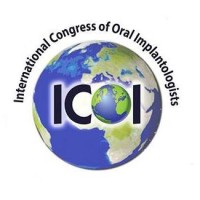A Dental Implant Is a Permanent Tooth Replacement

Do you need a dental implant? Read on to learn more about this type of dental restoration. Removable partial dentures and a fixed dental bridge not supported by implants are not considered permanent restorations. However, a dental implant restoration is considered permanent, as it essentially uses the same structure as a natural tooth.
What are the benefits of dental implant restoration?
The benefits of a dental implant include long-lasting durability, jawbone density preservation, improved appearance, better mouth function, and an easier oral care routine. The following is a detailed review of each benefit.
Osseointegration between the jawbone and dental implant
Osseointegration is the connection between a metal implant and bone. For dental implants, the implant is a titanium post, and it fuses inside of the jawbone to create a strong bond that can hold the abutment and prosthesis (e.g., dental crown or bridge) permanently. Many patients never have issues with their dental implant, and the average patient can expect it to remain in good condition for more than 15 years with proper care.
The ability to preserve the density inside the jawbone
Another unique benefit is the ability to preserve the density of the jawbone. After tooth loss occurs, the jawbone no longer has the purpose of holding the tooth in place, and bone atrophy inside the jaw can begin to occur as a result. Since the dental implant is fixed into the jaw, it protects against bone atrophy.
The ability to show off a natural and complete smile
An implant-supported crown (which is used for replacing only one missing tooth) looks like a natural tooth. The crown is matched to the same shade as natural teeth, and no one will ever suspect that it is a permanent tooth replacement rather than a natural tooth.
Improved mouth function with fewer dietary restrictions
One of the main concerns patients with a missing tooth have is that they can no longer chew and/or tear food the way they desire. By replacing the missing tooth with a strong and permanent dental implant, the ability to chew (and talk) is restored. Patients who choose dental implant treatment are also able to eat the way they desire without dietary restrictions.
An easier oral care routine that is the same as natural teeth
Removable dentures require much more daily care as they must be soaked and regularly cleaned while they are out of the mouth. With a dental implant, the patient can maintain the quality of their permanent replacement tooth in the same way as they do the rest of their natural teeth.
What is the dental implant treatment process?
The process for a dental implant may look different based upon the specific needs of the patient. First, the dentist must prepare the mouth for the placement of the dental implant. This means that there must be enough healthy bone inside of the jaw to support the implant long-term. If bone loss has occurred, then the patient may need a bone graft procedure. Treatment for periodontitis (if applicable) is likely necessary as well.
Once the mouth is ready for the placement of the dental implant(s), then the placement procedure is scheduled. Keep in mind, it can take several months to recover from a bone graft procedure. The placement procedure, which is a form of oral surgery, involves making an incision into the gums and drilling a small hole into the jawbone, in which the dental implant is permanently fixed.
After the surgical procedure, a process known as osseointegration must take place, which involves a fusion between the jawbone and the dental implant (or multiple dental implants when replacing more than one tooth). Osseointegration and healing can take several months. Once the mouth is ready, the abutment(s) and dental restoration (either a crown, bridge, or complete denture) are placed to complete the permanent tooth replacement process.
Who should consider a permanent tooth replacement?
A permanent tooth replacement is typically recommended for anyone who is not happy with their smile, ability to function, or state of their oral health. Although a dental implant restoration is perhaps the most long-lasting solution, other solutions may be available for tooth replacement as well.
Ready to schedule your appointment?
During your first visit here at our dental practice, we can discuss your goals for permanent tooth replacement, assess whether or not a dental implant is right for you, and provide you with a treatment recommendation on the same visit. To schedule a consultation, call us or send us a message today.
Request an appointment here: https://www.encinodentalassociates.com or call Encino Cosmetic & Dental Implants at (818) 578-2333 for an appointment in our Encino office.
Check out what others are saying about our dental services on Yelp: Dental Implants in Encino, CA.
Related Posts
People with tooth loss can smile with confidence again, thanks to the help of an implant dentist. Tooth loss can greatly impact a person's quality of life, affecting how they speak, eat, and feel about their smile. Also, tooth loss can eventually lead to bone loss and changes in facial structure. Fortunately, an implant dentist…
If you have missing teeth or are planning to get dentures, you might be wondering who to consult - an implant dentist or a general dentist? While both have a dental degree, the two are different in their specialties, expertise, and training. The right choice depends on your individual needs.Implant dentists specialize in providing dental…
There are many different types of dental specialists, but if you are looking for one that can help you with missing teeth, then what you need is an implant dentist. This particular type of dentist specializes in the installation of dental implants for missing teeth. Figuring out whether or not dental implants are right for…
An implant dentist is a dental professional who specializes in teeth replacement treatment with dental implant restorations. A dental implant is a screw-like titanium restoration that is placed into the jawbone and serves as the root of a replacement tooth (or multiple replacement teeth). In this review, we discuss the services that an implant dentist…




